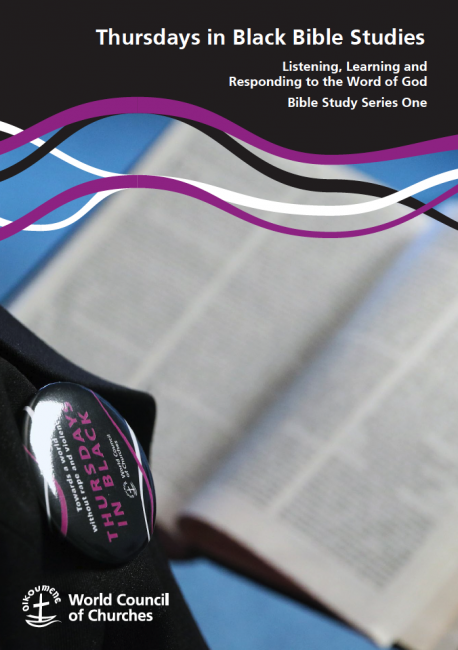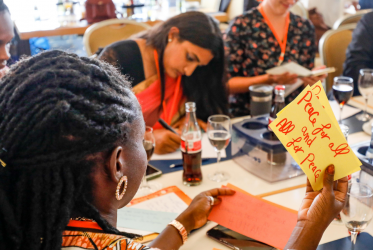Displaying 1 - 20 of 65
Thursdays in Black Bible Study: Solomon’s Wisdom in Judgment
08 December 2022
Upcoming webinar will focus on COVID-19 and caste discrimination
24 February 2022
WCC honoured with Geneva Engage Award
01 February 2022
Thursdays in Black Bible Studies Series 1
Listening, Learning and Responding to the Word of God
21 October 2021















